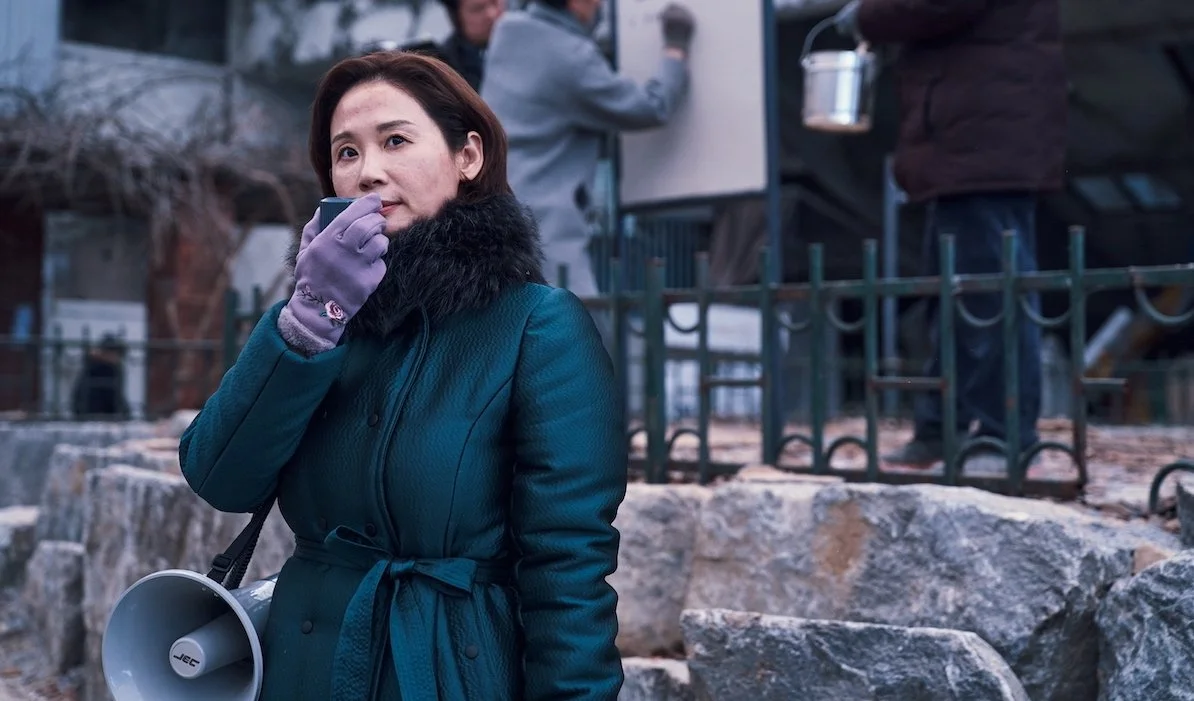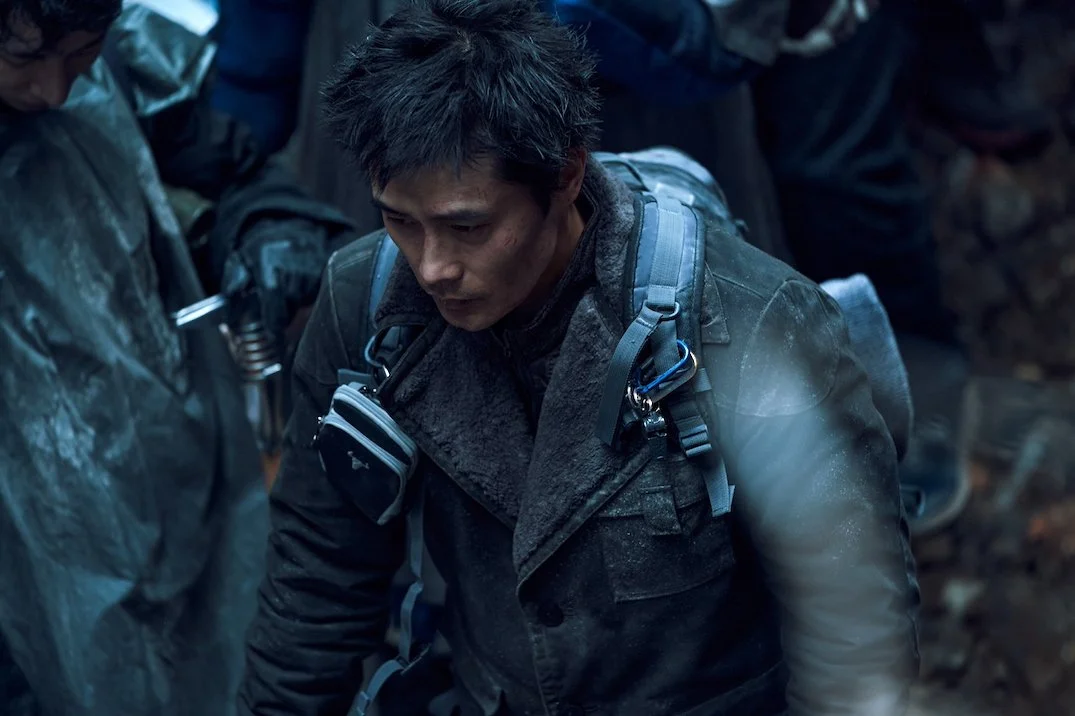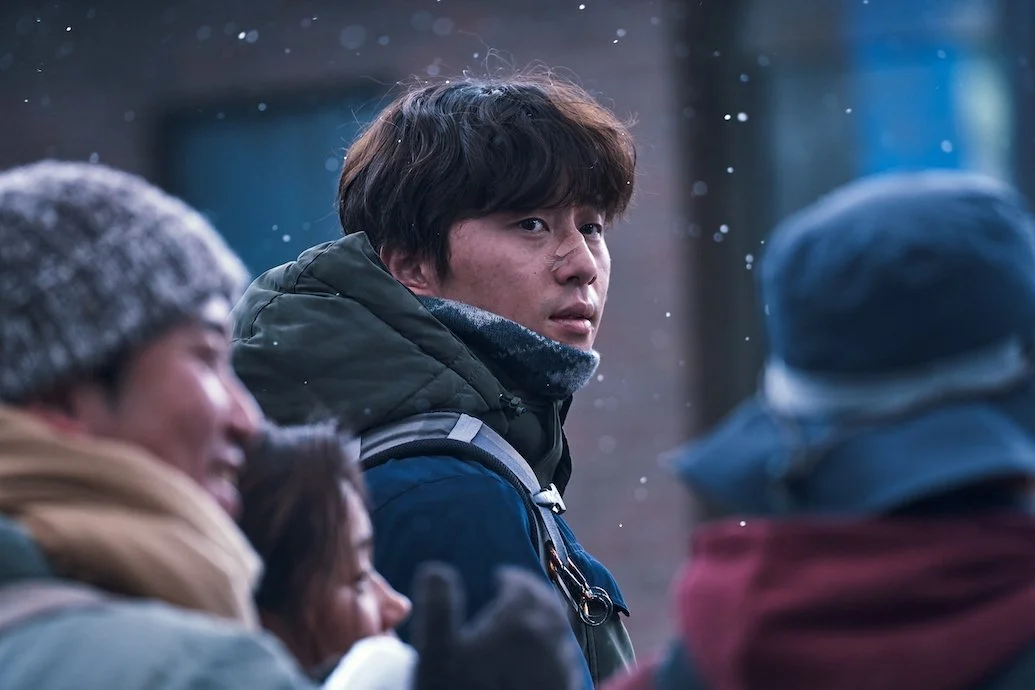Paradise Lost
Lee Byung-hun goes grimy in a dystopian disaster drama that’s less disaster and more drama. That’s a good thing.
Concrete Utopia
Director: Um Tae-hwa • Writers: Um Tae-hwa, Lee Sin-ji, based on the webtoon by Kim Soongnyung
Starring: Lee Byung-hun, Park Seo-joon, Kim Sun-young, Park Ji-hu, Kim Sun-young, Kim Do-yoon, Park Ji-hu
South Korea • 2hrs 9mins
Opens Hong Kong August 17 • IIB
Grade: B+
Warning! Concrete Utopia | 콘크리트 유토피아 is not a disaster film. Despite what the trailer hints at, and what the poster art looks like, the title is totally ironic. The disaster is seen briefly, in flashback, and the mess of the city that was formerly Seoul is the beginning of a larger story about class, privilege, the corrupting nature of power and how all can impact our humanity. I know, right? How very 1970s.
Relatively green director Um Tae-hwa turns the disaster genre on its head, at least its structure, and posits a landscape that’s already a hellhole, setting up the foundational normal we conventionally get in disaster films – getting the kids to school, picking the newspaper up off a sun-dappled lawn, a frustrating-yet-somehow-cheerful traffic jam an so on – as an unrelenting fight for survival against freezing temperatures and dwindling resources. Kind of like The Walking Dead when it was worth a damn. Throwing in a bit of mystery, some carefully deployed comedy and startling bursts of violence, Um adapts episode two of Kim Sung-nyung’s popular webtoon Joyful Outcast as a grim dissertation on human nature.
Concrete Utopia begins in the aftermath of a massive, massive, massive earthquake that has reduced Seoul to rubble – with the exception of a single tower at the Hwang Gung Apartments. It’s impossible to say but weeks, perhaps months have gone by, and not single city service has shown up; everyone’s got the feeling they’re gone too. The water and power are off, food is in short supply, and random survivors from other parts of the city are clamouring to get into the only safe haven and out of the winter. This naturally leads to squatters, and friction between residents and “outsiders”, and the eventual election of Young-tak (Lee Byung-hun, going all-in on the character) as the residents’ de facto president. He sets up committees to evict the interlopers, and then for some kind of social services for medical care, food rationing – and policing. Uh oh. The committee includes a young couple that had been struggling to get by, civil servant Min-sung (Park Seo-joon, Parasite) and his wife Myung-hwa (Park Bo-young), a nurse, as well as Young-tak’s biggest booster, Geum-ae (Kim Sun-young, Broker, chilling). When high school student Hye-won (Park Ji-hu, House of Hummingbird) stumbles home months later, she throws a wrench into Young-tak’s fervent defence of the oasis Hwang Gung has become, and everything eventually goes to shit.
Um cycles through all the ugly sides of human nature over the course of Concrete Utopia’s runtime largely by using Young-tak and Min-sung as avatars. His focus is thematic, which also allows him to avoid relying on (totally fine) VFX for the actual earthquake scenes that don’t really matter anyway. Young-tak and Min-sung’s arcs go from tragic to triumphant and back again as we watch the toll the downward spiral in civility and rising violence takes on each. Surprise, surprise: one loves it, the other not so much. Through their distinct filters, Um and co-writer Lee Sin-ji do a nice – sometimes shocking – job exploring the social dynamics at play. There’s a class element involved. Hwang Gung’s residents are feeling vindictive because of perceived prior slights (the initial outsiders were from the proverbial right side of the tracks). There’s a power element involved. Young-tak finds in Hwang Gung what he was denied in the before times (yikes), and latches on to his newfound position with bared fangs. Rules meant to make everything better for everyone soon transform into a cudgel for absolute authority and a healthy respect for white terror. Of course, Koreans are going to glean more from the very image of the apartment tower as a beacon of success, upward mobility and, more recently, economic schisms between the middle class and the one percent (huh, maybe not just Koreans). Good for them, but the rest of us can just wallow in Concrete Utopia as a subversive spin on an old favourite. Like any good genre entertainment it’s about the world right now, and there’s more than one disaster here. — DEK



